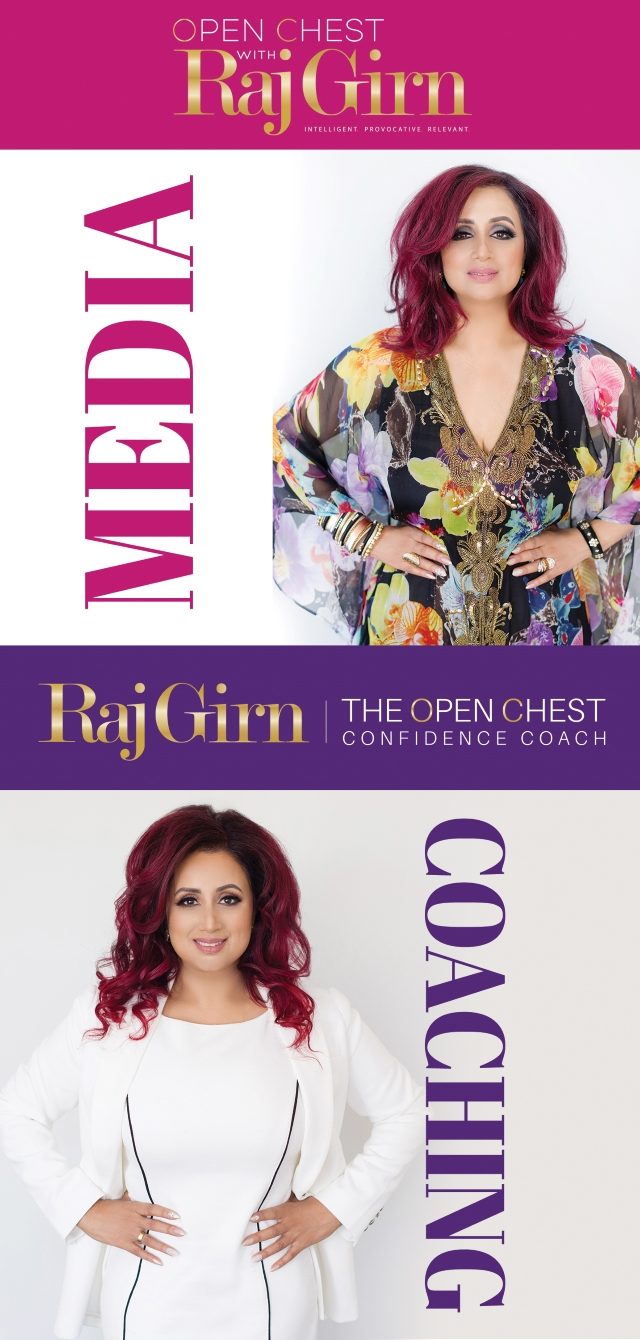 Heaven On Earth, which saw its world premiere at the Toronto International Film Festival this year, is a must-see film about the universal intricacies surrounding abuse. The horrors of abuse are seen through the perspectives of each member of a Canadian-Punjabi immigrant family, who are bound by the harsh realities of their respective circumstances.
Heaven On Earth, which saw its world premiere at the Toronto International Film Festival this year, is a must-see film about the universal intricacies surrounding abuse. The horrors of abuse are seen through the perspectives of each member of a Canadian-Punjabi immigrant family, who are bound by the harsh realities of their respective circumstances.
Shot in both colour and black and white, this Punjabi language film centres around a newly-married couple played by Bollywood heavyweight, Preity Zinta, and newcomer, Vanish Bhardwaj. Both characters are victims of abuse, but how they choose to retaliate, if at all, is the journey around which the story is set. Inspired by the play, Naga Mandala, which in turn was inspired by an old Indian folktale about a lonely wife and a king cobra, the plot unfolds in the formidable style that is indicative of the uniquely insightful and multi-talented genius of Deepa Mehta.
Read On…
People who have seen your new movie are in discussions about what the title Heaven on Earth actually means. Some state that it has an ironic meaning, since the character of Chand, around which the story is centred, experiences quite the opposite, but others believe that it is the hope of Chand to acquire Heaven On Earth that is the true meaning of the title. Could you clarify which one is the true meaning?
The title comes from the Gurbani (Sikh Holy Book) and it is quoted by Papa-ji in the movie. He says that it’s better to be in hell than to lose one’s faith. And what’s a heaven where there is no dignity? So ‘Heaven on Earth’ means that all of these people are here from India and they have no dignity. They have lost their dignity or their humanity. What’s the point of life if we can’t live as dignified human beings? Coming to Canada doesn’t necessarily mean that you’re going to find dignity.
Because dignity comes from within?
Or it comes from without. In short, nobody gives you dignity–you have to find it for yourself
The movie was shot in both colour and black and white. Why?
Very few portions were shot in black and white. There’s some moments that needed to be emphasized and one of the most important themes of the film is isolation. To show these moments through the darkness of black and white helps to accomplish this.
Why did you decide to shoot the movie in Punjabi but then release it for a multicultural audience?
It’s the same way that I shot Water (2005) in Hindi and released it to a multicultural audience – whatever is authentic to the film.
This is a very dark film with a beacon of light at the end, which is indicative of the Deepa Mehta school of movie making.
(Laughs)

You always make movies strewn with obstacles and laden with hope. Why?
I think it reflects on my personality. We’re all surrounded by issues all the time, and I’d rather do something than nothing. We need to understand the dark aspects of our lives, and it’s naive to think we don’t have any when we all do. I try to show this through my movies but then add to it my personal belief that no matter how much darkness, there is there is always hope.
The story of Heaven On Earth depicts the struggle of a girl who journeys in her innocence from a happy and much loved home in Ludhiana, Punjab, India, to an arranged marriage in an unhappy, devoid-of-love home in urban Canada. The symbolism here of purity and innocence journeying towards harsh realities reminded me of a movie I saw once as a child called Ram Teri Ganga Maili (1985) by Raj Kapoor where the central character, Ganga, paralleling the Indian river Ganges, leaves the purity of the mountains to travel south. On her journey, she is exposed to the pollution of mankind. For me, your depiction of a similar parallel between Chand’s physical and emotional journey is so poignant and masterfully woven into the fabric of your story. Was this your intent?
Partly, yes. Sometimes you have to go through that journey in order to find yourself.
Finding yourself meaning having control over your life?
Yes.
The child-like innocence with which Chand arrives in Canada is quickly lost in the face of domestic abuse by her husband, who is consumed by the pressures of financial obligations to his family, and all this is further complicated by a manipulative, self-centred matriarch who creates a war between Chand and herself pertaining to the man they both share. This is a story that many, many women, especially in the South Asian community, will either be able to relate to from firsthand experience or from second-hand exposure. What do you hope to achieve by telling their story?
As a filmmaker, I hope to achieve the telling of a story, first, and hopefully create awareness that we’re not alone, second. Nobody’s alone as someone somewhere has or is going through something similar if not the same. Whether you come from Uganda, India, here or Timbuktu, these experiences are universal. I’ve used the South Asian model because that’s the one I’m familiar with, and I want to be authentic. Anybody who sees the movie, I hope, will find a resonance in their lives regardless of the class or culture they come from.
Another notable point about the movie is the juxtaposition of quietness and noise. Each time I saw the abuse coming, I felt like I was on ride at a theme park, right at that point when the gondola slowly rides up the first hill and then turns into a fast, vertical drop — that feeling of your stomach in your mouth. This was genius, because the impact was so much greater than if you had chosen to direct these scenes with intense, typical showbiz-like action and drama. When a decision like this is made as to how to direct all of the elements to get the desired effect, there is a risk involved in whether you achieve the right impact. How did you decide that this would be the way that you would depict the abuse and achieve the desired effect in terms of the audience watching the movie?
The film is not about ‘domestic abuse,’ it’s about ‘abuse.’ It is also about the emotional erosion of human beings. In fact, the role of Rocky (Chand’s husband), is one of a man who is also abused by circumstances that bind him to act out. There is also the abuse related to the circumstances of each of the other members of the family. So the film is not about domestic abuse but about abuse — how we abuse our parents and siblings and how they abuse us. Also, on the larger scale, how we’re abused by society. This for me is a very important theme of the film. Moreover, coming to the West from the East can also be an abuse if you’re not prepared for it. When the theme becomes more than just domestic abuse, then you have to look at the wider picture. How do you convey that wider picture to have the desired effect on your audience? The only thing I could think of was quiet so you can have that moment of distance from the point when the abuse happens.
I see what you mean. How prepared are we and what tools do we have that we’ve garnered through life that will actually prepare us for what lies in our futures, especially when there is a drastic change involved as is the case in Heaven On Earth –the change of country and with it, lifestyle and circumstance?
Absolutely! And this goes back to the meaning of the title–just because you come here, doesn’t mean that you’ll find Heaven here.
And it is this belief of the acquisition of the proverbial ‘pot of gold’ or better life that encourages people move from one area or country to another.
And in many cases, there isn’t.
Unfortunately, many discover that once they get here their ‘pot’ is not full of gold but something they may not be prepared for, and I guess it is this which in turn initiates the cycle of abuse on many levels to many people, mostly those in close proximity.
I think many people would be better off if they went home and at the end of the movie, Chand does leave. She breaks the cycle of abuse by taking control of her life.
You chose Preity Zinta to play Chand. What was it about Preity that gave you the confidence to invest in her to breathe life into a role that is the cornerstone of the movie, especially in light of the fact that she is an actress who is accustomed to the Bollywood acting formula, which is not the kind of movies you make?
The reason I choose certain actors is because I look for who I feel would be right for a particular character. When I met Preity, there was something about her which was really alive and bubbly. I knew she was a really good actor because I’ve seen her balance I wanted for Chand. Also, since Chand comes from India, it was important for me to have an Indian actress from India for authenticity.
And having seen the movie, I agree with you that Preity does a stand up job and a lot of people who will see the movie will be pleasantly surprised with Preity’s performance because most of us know her as a Bollywood formula actor. This movie allows us to peer into the diversity of her range and recognize that she truly is a seasoned actor.
Yes, she’s amazing!
I heard that she had to learn Punjabi for the role.
Yes, she did.
I was surprised that she was not already Punjabi-speaking, as her diction was spot on. How did she go about preparing for her role in this regard and what role did you take in assisting her in accomplishing this?
We all helped in that process as most of the actors in the film are Punjabi-speaking, and I myself know Punjabi very well. What Preity did was to first understand her character, then understand her lines and the scene that the lines were attached to, and then she translated it into Punjabi so it became a totally organic experience. This was her process, and it was very insightful of her to break it down this way it worked.
 When choosing the actors to play the roles in your movies, you always choose one unknown actor or someone who has never acted before to play one of the principal roles–Earth (1998) had Lenny played by Maia Sethna, Bollywood/Hollywood (2002) had Rahul played by Rahul Khanna and Water had Chuyia played by Sarala Kariyawasam. In Heaven on Earth, you chose Vanish Bhardwaj to play the role of Chand’s husband, Rocky. What was it about him that resonated with you?
When choosing the actors to play the roles in your movies, you always choose one unknown actor or someone who has never acted before to play one of the principal roles–Earth (1998) had Lenny played by Maia Sethna, Bollywood/Hollywood (2002) had Rahul played by Rahul Khanna and Water had Chuyia played by Sarala Kariyawasam. In Heaven on Earth, you chose Vanish Bhardwaj to play the role of Chand’s husband, Rocky. What was it about him that resonated with you?
I saw Vanish in a Punjabi play in India, and I thought that he was superb. He was just amazing! He blew me away!
And again, great choice of actor as he captured the two contrasting characters of Rocky — the man husband and the snake husband with great attention to detail. The aura of both versions was so strikingly different, lending to the understanding of why Chand was so confused, each time she was with one or the other, not knowing that there were two of them.
And that’s why the right actor for a specific role is imperative to the storytelling process. The man husband is fraught with rage over the predicament of his circumstances; therefore, cannot be a good husband to Chand, but the snake husband highlights all that a man has the potential to be that is good in a husband. Vanish delivers these messages in both roles beautifully.
Heaven On Earth was inspired by an old Indian folktale about a king cobra and a lonely wife. For those of us who are not familiar with the folktale, could you clarify what the story is about and the relevance of its use in your movie?
There’s actually numerous folktales and myths that tell the story of the lonely or neglected wife who finds solace in the love of a non-human entity. This entity in some stories is a ghost and in others is a king cobra. What fascinated me about making this film around this myth that is abound in the fabric of Indian history was the desire of a bride to have a husband that is good to her. In the film, when Chand asks the snake Rocky “Who are you”, he answers by saying “Aren’t I what you desire?” That’s what the folktale and the film is about.
Chand lives parallel lives with two versions of her husband one which is set in reality and negative and one which is set in fantasy and positive. Is the purpose of this to show how we as humans lean towards our fantasies as a defence mechanism to protect ourselves from the harsh realities of our predicament, or is it that even our wildest of dreams are possible if we believe it to be so?
For me, it’s the former leading into the second part of your question. When reality gets so tough, you have no recourse but to create a world that is more palatable then the one you live in so you have to believe it in order to make it a reality.
Chand means moon. Was the use of this word as her name deliberate because in darkness there is always moonlight to guide us? Since Chand was not able to guide the family she is married into through their darkness, is the purpose of her name pursuant to her guiding herself out of darkness — from bondage to freedom so to speak?
I didn’t even think about that but I’m glad you did. I just liked the name. Chand’s purpose is to find herself and to find her inner voice which is what I hope that every woman can do.
 What do you hope the audience will get out of watching the movie?
What do you hope the audience will get out of watching the movie?
Abuse knows no class, no caste, no colour. It doesn’t matter if you have a PhD or haven’t even completed high school. It is completely irrelevant. To abuse or be abused has no boundaries.
From my experience, after having watched the movie amongst a mixed cultural audience, it was interesting to see that the effect the movie had on the audience during the domestic abuse scenes. I think the visually graphic portrayals of abuse that you handled in the movie created the same shock and horror for everybody because you could hear a pin drop in the dead of silence. I also observed people as they left the theatre and each and every face, whether woman or man, brown, black or white, was affected and emotionally drained at the end of the experience. How do you feel about that?
I think that’s great! I guess I must have done my job.
First published in Fall 2008 issue, www.AnokhiMagazine.com.
Photo captions:
Photos courtesy of Dusty Mancinelli
Photo i: Director Deepa Mehta
Photo ii: Director Deepa Mehta (left) and Preity Zinta (right)
Photo iii: Vansh Bhardwaj as Rocky (top right) and Preity Zinta as Chand (top left)
Open ChestTM is a registered trademark of RG Media Enterprises Inc. All rights reserved.









